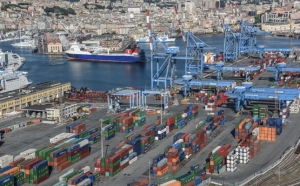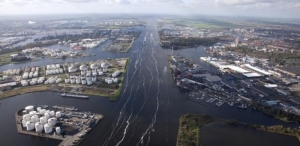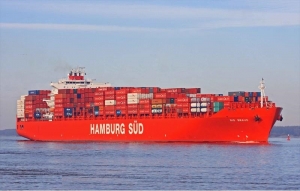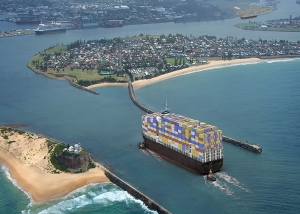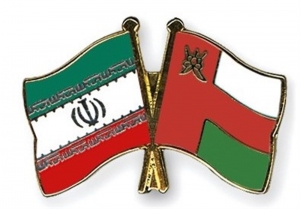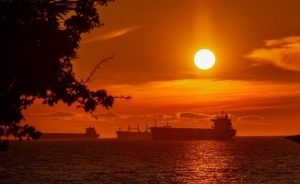News
Latest news
More...
The World Trade Organization (WTO) expects slower trade growth this year. The weakness is likely to extend into the first quarter of 2019, according to the WTO’s latest World Trade Outlook Indicator released on February 19.
The most recent WTOI reading of 96.3 is the weakest since March 2010 and below the baseline value of 100 for the index, signaling below-trend trade expansion into the first quarter. Weakness in the overall index was driven by steep declines in export orders (95.3), international air freight (96.8), automobile production and sales (92.5), electronic components (88.7) and agricultural raw materials (94.3).
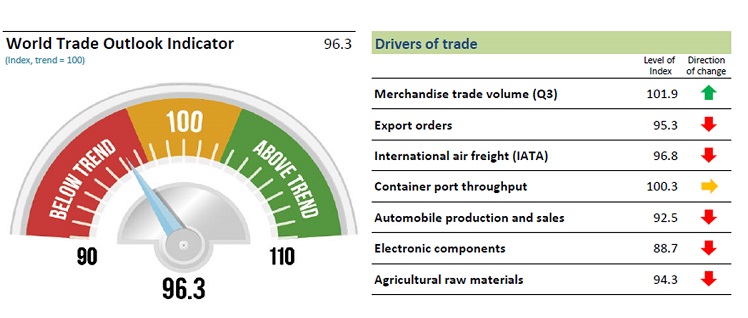
Only the index for container port throughput remained relatively buoyant at 100.3, showing on-trend growth. Front-loading of imports ahead of anticipated U.S.-China tariffs may have sustained container shipping to some extent, while technical problems in the German automotive sector may have contributed to weakness in automobile production and sales.
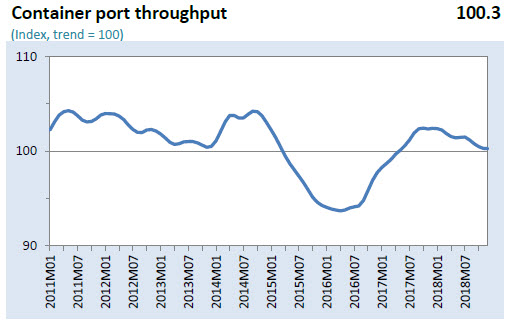
The sustained loss of trade growth momentum highlights the urgency of reducing trade tensions, which together with continued political risks and financial volatility could foreshadow a broader economic downturn, warns the WTO.
The WTO downgraded its trade forecast last September amid escalating trade disputes and tighter credit market conditions. Trade growth is currently forecast to slow to 3.7 percent in 2019 from an expected 3.9 percent in 2018, but these estimates could be revised downward if trade conditions continue to deteriorate.
Reference: The Maritime Executive
The Dutch Port of Amsterdam has launched a Cybersecurity Programme in an effort to increase the port community’s digital resilience.
The port sees the importance of the proactive involvement of companies in the port area in joint efforts to improve cyber resilience.
The programme comprises two elements, a hotline and the Cyber Resilient North Sea Canal Area (CYREN) network. The CYREN network collects information about cyber threats and shares this with the affiliated companies.
The hotline provides these companies timely and effective information about potential cyber attacks in the North Sea Canal Area. Companies can contact the hotline when a situation occurs that could impact the port region. The hotline is staffed by the Harbour Master’s Division.
“Data flows and chains are increasingly being linked together and made available to a broad public on the Internet. This offers both opportunities and substantial challenges for information security,” Marleen van de Kerkhof, Harbour Master of Port of Amsterdam and initiator of Port of Amsterdam’s Cybersecurity Programme, said.
“An attack on a customer’s or supplier’s information system not only impacts the company but can often also affect all other companies in its surroundings and disrupt shipping operations: cyber incidents are not limited by physical boundaries. Rapidly sharing the latest information about threats, incidents and perspectives for action increases the cyber resilience of the entire port region,” van de Kerkhof added.
As explained, ports are particularly vulnerable to cyber attacks as they have a wide range of information systems and their data is used by many different parties. What is more, the Netherlands is one of the world’s top three countries affected by cyber attacks.
Information systems contain valuable information that makes them an appealing target for cybercrime. Every company needs to have implemented basic cybersecurity controls such as an awareness programme, segregation of networks, timely installations of security updates and a multi-layered security approach.
CYREN has been recognised by the Ministry of Economic Affairs and Climate Policy through the Digital Trust Center. Several companies and organisations make an active contribution to the development of the CYREN network in the North Sea Canal Area.
Hamburg Süd’s bulk shipping brands include Rudolf A. Oetker (RAO), Furness Withy Chartering and the bulk activities in Alianca Navegacão (Aliabulk). The RAO Tankers business unit is not included in the sale and will remain part of the Hamburg Süd Group for the time being.
The bulk shipping business in Hamburg Süd operates from Hamburg, London, Melbourne and Rio de Janeiro with a chartered fleet of approximately 45 vessels in the segments: Handysize, Supra/Ultramax and Kamsarmax/Panamax.
“With this step, Hamburg Süd is focusing as planned on its liner business with its two container shipping brands, Hamburg Süd and Aliança,” says Dr. Arnt Vespermann, CEO of Hamburg Süd.
“As part of Maersk, the world’s largest liner shipping company, this clear focus is a logical step. At the same time, CNCo is an established and well-respected company in bulk shipping that is on a growth course in this segment and therefore constitutes a good new home for RAO, Furness Withy and Aliança Bulk.”
Headquartered in Singapore, CNCo owns and operates about 135 vessels consisting mainly of dry bulk carriers and multipurpose liner vessels. Swire Bulk, its dry bulk trading business, established in 2012, trades a fleet of over 100 Handysize and Supra/Ultramax vessels comprising owned, long term and short term-chartered tonnage.
“CNCo is excited to have successfully signed this acquisition,” commented James Woodrow, Managing Director of The China Navigation Company.
“There are some very natural synergies between the businesses and we are delighted to acquire such an experienced and high-quality team and business that complements our own modern eco fleet and helps to develop our strategic expansion in to the Supra/Ultramax segment.”
Closing of the agreement is expected by the end of the first quarter of 2019, subject to regulatory approval. The parties have agreed not to disclose the sales price.
Port of Newcastle has become the first port in Australia or New Zealand to commit to meeting global environmental and sustainability standards as set by EcoPorts.
“Port of Newcastle is pleased to be part of a global network of ports operating within an established environmental and sustainability framework that understands and actively addresses the complex aspects of port operations,” Port of Newcastle environmental adviser, Jackie Spiteri, said.
“We not only commit to meeting EcoPort’s world’s-best practice standards, but will work with other ports across the region to champion the environmental and sustainability benefits available for the maritime industry.”
The development comes on the back of Port of Newcastle’s intention to further expand automation and electrification of the port in an effort to improve efficiency, reduce emissions and minimise its environmental impact.
Port of Newcastle is now working towards achieving certification under EcoPort’s Port Environmental Review System, which is independently tested against best practice management by Lloyds Register and is the only system of its type in the world, the port explained.
The Omani ambassador to Tehran said Sun. that the government and private sector of Oman are ready to invest in Iranian Chabahar region
Oman Ambassador to Iran Saud bin Ahmad Khalid al-Barwani made the remarks in a meeting with the managing director of Chabahar Free Zone Abdulrahim Kurdi on Sunday afternoon.
“Increasing business and economic cooperation between Oman and Iran could lead to the development of relations between the two countries,” al-Barwani said.
The ambassador further described Chabahar as the best platform for Iran-Oman relations, adding that the port can play an important role in the development of regional trade in the future.
He also attached great importance to the tourism, commercial and economic potentialityies of Chabahar, saying that the Iranian port is an attractive area in the region for investment.
The Omani diplomat expressed Oman’s readiness to implement phase 2 of Chabahr’s Shahid Beheshti port along with the passenger terminal of Shahid Kalantari Port there.
In the meeting, the managing director of Chabahar Free Zone Abdulrahim Kurdi, for his part, detailed the commercial and trade capabilities and the potentialities of Chabahar Free Zone, stressing that his organization seeks to provide high-quality services to the investors in order to play a positive role in the relations between Iran and Oman.
He further said that Iran-Oman bilateral cooperation plays a positive role in the economic development of the region, adding that the Chabahar Free Zone is ready for more industrial and agricultural investment.
He also emphasized that the talks and relations between Oman and Chabahar Free Zone must become operational.
While in Chabahar, the Omani ambassador along with his accompanying delegation visited the commercial, transit and tourist facilities of the port and the coastal region of Chabahar.
Swiss-based marine fuel treatment company Aderco reminded ship owners, ship managers and operators that they should already have started planning to comply with the IMO’s 2020 global sulphur cap.
Olivier Baiwir, CEO of Aderco, believes some in the maritime industry perceive the start of the cap as being nearly a year away, but they need to rethink that position and, quickly, to ensure they will be compliant with the new regulations.
“The IMO sulphur cap starts on January 1, 2020 but in reality the planning for compliance is just over a month away. By this March ship owners, ship managers and operators need to be lining up their treatments in preparation for the end of 2019 when they will be bunkering the new fuels. Despite the recent highly publicized bans on open-loop scrubbers, fuel treatment remains the most cost-effective and simplest way to address compliance, as well as providing an extra bonus of helping to protect your marine diesel engines,” Baiwir said.
As explained, in the run-up to the cap, flushing and cleaning of tanks prior to bunkering new fuel is the most important task to be addressed.
“Even the slightest amount of high-sulphur fuel remaining in the tank will mean non-compliance. Using fuel treatment from our recommended date of June this year should provide the necessary flushing and cleaning ready for the new fuel,” he added.
Baiwir sees additives as a continuous and effective solution to the cap and the smart way towards compliance.
Additives are poured directly into storage tanks prior to bunkering and can also be added directly into fuel tanks to reduce commingling risks, regenerate the current sludge into usable fuel and clean out contaminants before taking on the new low-sulphur fuel, Aderco explained.
“We have been advising our customers that compliance with the cap starts in the fuel tank and that now is the time to really start preparing for IMO 2020,” Baiwir added, voicing concern that there will be some ships reaching the end of 2019 without being ready for the new fuels.
“The simplest and most cost-effective method is a fuel treatment. With a strong focus likely to be on the shipping world and policing by Port State Control in the early part of 2020 for anyone not adhering to the new rules, the chances are that some will find themselves on the end of hefty fines and detentions for non-compliance. When all it takes is the addition of a fuel treatment it seems a small price to pay for peace of mind and operational efficiency,” he concluded.




















